Photographs: Reuters Rediff Business Desk
As many as 74 per cent Indians believe that corruption levels have increased in the past three years.
Globally, 60 per cent people hold the same view, and one in four people report paying bribes in the last year.
These are the findings of the 2010 Global Corruption Barometer, a worldwide public opinion survey on corruption, released on Thursday, International Anti-Corruption Day, by Transparency International.
The Global Corruption Barometer is the largest cross-country survey to collect the general public's views on and experiences of corruption. In 2010, the Barometer interviewed more than 91,500 people in 86 countries, making it the most comprehensive edition since it was launched in 2003.
The Barometer explores the general public's views about corruption levels in their country and their government's efforts to fight corruption.
Click NEXT to check out which are the most corrupt institutions, why do people pay bribes and who do they trust the most . . .
Politicians, police most corrupt, says global survey
Photographs: Uttam Ghosh/Rediff.com
1. Political parties: The most corrupt!
The 2010 Barometer asked respondents for their views on the extent to which they believe 11 key sectors and institutions in their country are affected by corruption.
The list includes:
Most affected by corruption
- Political parties
Highly affected by corruption
- Police
- Civil service
- Parliament
Affected by corruption
- Private sector
- Religious bodies
- Judiciary
- Media
- Education system
Least affected by corruption
- Military
- Non-governmental organisations
Globally, political parties are judged most affected by corruption: almost 80 per cent of all respondents think they are either corrupt or extremely corrupt.
They are trailed by a second grouping, including public servants, parliaments and the police.
A third group of institutions is made up of the private sector, religious bodies, the judiciary, media and the education system.
Respondents worldwide consider the military and non-governmental organisations least affected by corruption, although 30 per cent still considered them corrupt or extremely corrupt.
. . .
Politicians, police most corrupt, says global survey
Photographs: Dominic Xavier/Rediff.com
Major findings
Corruption levels around the world are seen as increasing over the past three years:
--- Almost six out of 10 report that corruption levels in their country have increased over time.
--- The biggest increase is perceived by respondents in North America and EU+4.
Political parties are identified as the most corrupt institution around the world.
--- Eight out of 10 judge political parties as corrupt or extremely corrupt, followed by the civil service, the judiciary, parliaments and the police.
--- Over time, public opinion about political parties has deteriorated, while opinions of the judiciary have improved.
Experience of petty bribery is widespread and has remained unchanged as compared to 2006:
--- The police is identified as the most frequent recipient of bribes in the past 12 months. The police also has the biggest increase in bribery incidents over time, according to the general public surveyed.
--- In eight out of nine services assessed, people in lower income brackets are more likely to pay bribes than people in higher income brackets.
--- The reason most often given for paying a bribe is 'to avoid a problem with the authorities'.
. . .
Politicians, police most corrupt, says global survey
Photographs: Courtesy, TI 2010 Global Corruption Barometer.
Government action to fight corruption is often seen as ineffective.
--- Across the world, one in two considers their government's actions to be ineffective to stop corruption.
--- While global views have not changed over time, opinions about government efforts have deteriorated in Asia Pacific, Latin America and Sub-Saharan Africa, but improved in the Newly Independent States+ and North America.
There is little trust in formal institutions to fight corruption:
--- One in four worldwide does not trust any particular institution 'most of all' to fight corruption.
--- Nearly one in four trusts the media or government the most to stop corruption.
There is significant belief that the public has a role to stop corruption - and a willingness for action in reporting on corruption when it occurs.
--- Seven out of 10 respondents think ordinary people can make a difference in the fight against corruption, while half could imagine themselves getting involved.
--- People are willing to report corruption to the authorities: seven out of 10 respondents reported they would denounce an incident. This willingness to report a case of corruption is more pronounced in the Americas and EU+.
. . .
Politicians, police most corrupt, says global survey
Photographs: Reuters
Media most trusted!
The 2010 Barometer asks the general public how they evaluate government efforts to curb corruption in their country.
Half of those interviewed deem their government's anti-corruption efforts to be ineffective, while three out of 10 think that these efforts are effective.
The general public's overall evaluation of their government's efforts has not changed much over time. For the first time, the 2010 Barometer asked the general public whom they trust the most to stop corruption in their countries.
Results show that, insofar as any one institution is trusted, the most trusted actor is the media. Almost as many people trust their governments most of all to curb corruption.
However, a full quarter of those asked report that they do not trust any institution in this regard.
Around one in every 10 respondents would put their greatest trust in the private sector, in non-governmental organisations or in international institutions.
. . .
Politicians, police most corrupt, says global survey
25% people worldwide have paid a bribe
The 2010 Barometer explores experiences of petty bribery among the general public around the globe, asking more than 77,000 users of nine different basic services whether they had to pay a bribe when interacting with them.
As in past editions, the 2010 Barometer examined bribery when people had contact with customs, education, the judiciary, land related services, medical services, the police, registry & permit services, tax authorities, and utilities.
One out of every four users of these services reports paying a bribe in the past 12 months.
The group of countries reporting the highest petty bribery levels includes: India, Afghanistan, Cambodia, Cameroon, Iraq, Liberia, Nigeria, Palestine, Senegal, Sierra Leone, and Uganda.
. . .
Politicians, police most corrupt, says global survey
Poorer people have to pay more bribes
The survey shows again that poorer people around the globe are more frequently penalised by bribery.
In eight out of nine services, users whose stated income corresponds to low income quintiles pay bribes more frequently than those stating higher income levels.
The biggest disparities exist in interactions with customs and registry & permits services, where respondents with lower income report more numerous incidents of bribery.
. . .
Politicians, police most corrupt, says global survey
Photographs: Uttam Ghosh/Rediff.com
No drop in petty bribery levels in the last 5 years
The survey also shows how experiences with petty bribery have changed over time. Findings are discouraging: globally, users of seven basic services report paying similar levels of bribes to five years ago.
However, when examined at the institution/service level, even more concerning results emerge: there are substantially more reported bribes to the judiciary, the police and registry & permit services than previously.
. . .
Politicians, police most corrupt, says global survey
Photographs: Uttam Ghosh/Rediff.com
Why bribes? To avoid problems, of course!
To understand people's experiences with bribery in greater depth, the 2010 Barometer explores why bribes are paid.
Specifically, it asks respondents to indicate the reason for the last bribe paid, based on a list provided to them. Nearly half of all respondents report that the last bribe was paid 'to avoid a problem with the authorities'.
Almost one quarter of respondents cited 'speeding things up' as the reason for the bribe, followed by 'to receive a service they were entitled to'.
. . .
Politicians, police most corrupt, says global survey
Photographs: Reuters
People ready to fight corruption
The 2010 Barometer examines the general public's willingness to get involved in the fight against corruption.
Almost seven out of every 10 respondents think that the general public can make a difference in the fight against corruption and would definitely support a friend who wants to engage in the cause.
When asked about their own personal involvement, willingness is somewhat reduced: half report that they could imagine themselves getting personally involved in the anti-corruption cause.
The 2010 Global Corruption Barometer was carried out on behalf of TI by Gallup International.

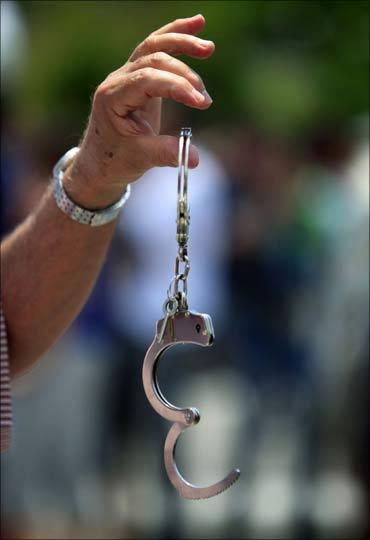
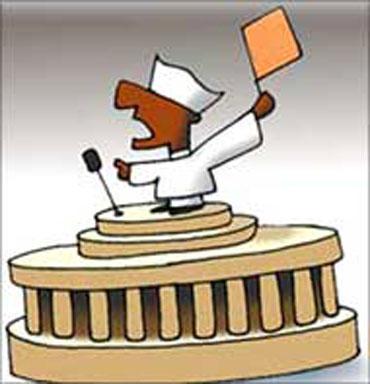
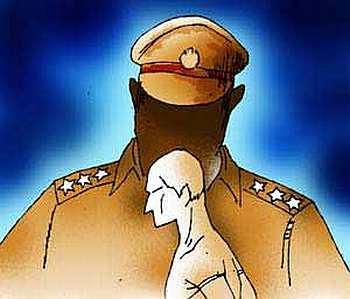
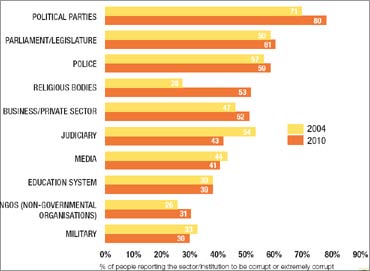
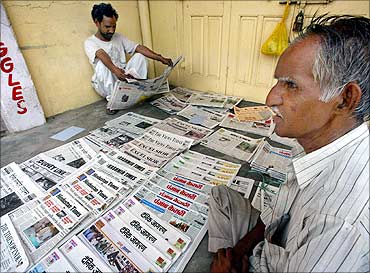
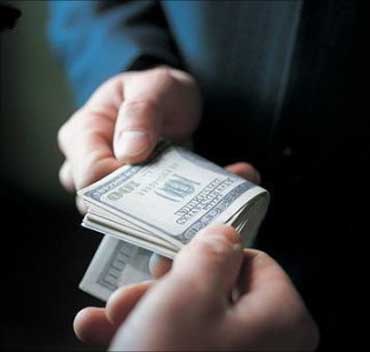
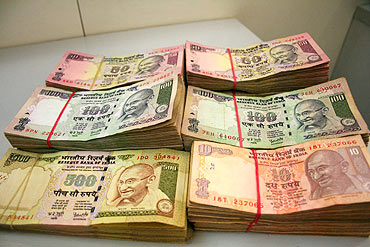
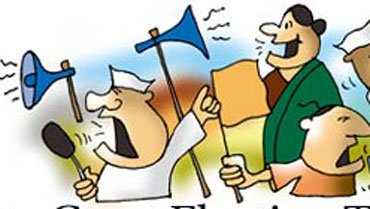
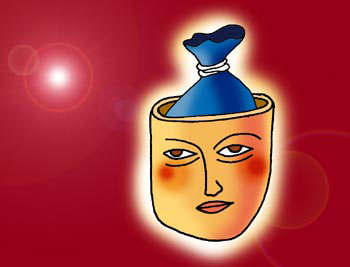
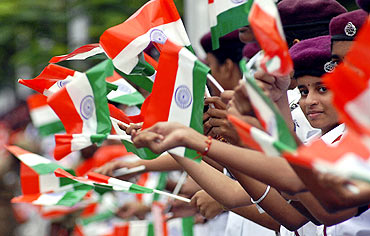
article